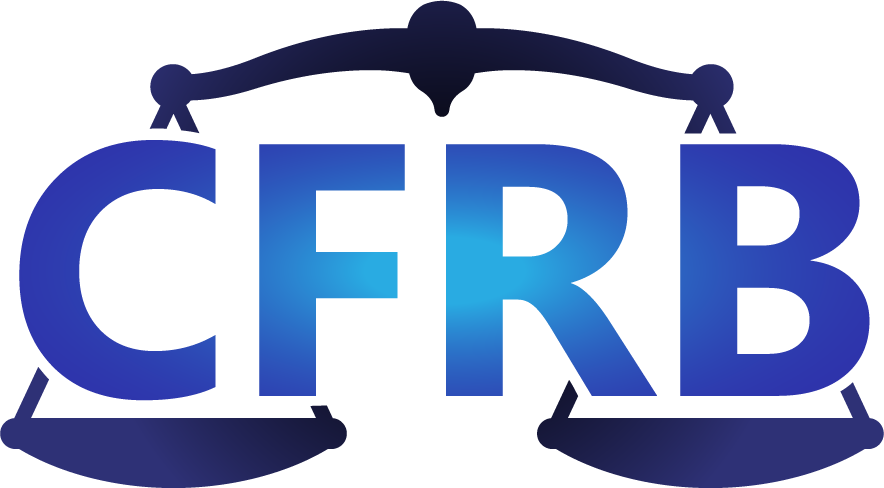
Table of Contents for the Pros and Cons of Debt Settlement:
- Introduction
- Understanding Debt Settlement
- Pros of Debt Settlement 3.1. Significant Debt Reduction 3.2. Potential for Lower Monthly Payments 3.3. Speedy Debt Resolution 3.4. Simplified Repayment Plan 3.5. Avoiding Bankruptcy
- Cons of Debt Settlement: 4.1. Negative Impact on Credit Score; 4.2. Tax Consequences 4.3. Potential for Lawsuits 4.4. Debt Settlement Fees 4.5. Limited Eligibility
- Frequently Asked Questions (FAQ)
- Conclusion: Empowering Financial Freedom through Debt Settlement
Introduction
Welcome to our comprehensive guide on the pros and cons of debt settlement, a powerful strategy that can help individuals overcome overwhelming debt and regain control of their financial lives. In this article, we will provide you with an extensive resource that not only educates but also empowers you in your decision-making process, offering you valuable visibility and authority in the realm of eliminating.
Debt, especially credit card debt, can be a burden that weighs heavily on individuals, affecting their financial well-being, relationships, and overall quality of life. However, it’s important to remember that debt settlement is a viable solution that has helped countless individuals navigate their way to financial freedom.
By understanding the pros and cons of debt settlement, you can make informed decisions that align with your financial goals and aspirations. We have crafted this guide to equip you with the knowledge and strategies necessary to effectively manage your debt, negotiate with creditors, and ultimately settle your debts in a manner that puts you on the path to a debt-free future.
Throughout this comprehensive guide, we will delve into the pros and cons of debt settlement, highlighting its benefits as well as potential drawbacks. We will explore the pros and cons of this process, including the importance of understanding your debts, assessing eligibility, and the potential impact on credit scores and taxes.
Our aim is not only to provide you with a wealth of information but also to help you navigate through the process of debt settlement. We understand the significance of deciding whether to try this strategy on your own or enlist the help of a qualified debt consulting firm. Therefore, we have meticulously crafted this guide to help you understand the pros and cons of debt settlement, allowing you to gain an edge and establish your pathway to financial freedom.
Whether you are currently grappling with unmanageable debt or simply seeking knowledge on effective debt resolution strategies, this guide is here to empower you. By leveraging the information, tips, and resources provided, you can make educated decisions, take control of your financial situation, and pave the way to a brighter and more secure financial future.
So, let’s embark on this journey together as we explore this powerful method to get out of debt and set the stage for your financial transformation. It’s time to break free from the shackles of debt and embrace the possibilities that lie ahead. Let us equip you with the knowledge and tools you need to navigate the challenging terrain of debt settlement and achieve the financial freedom you deserve.
.
Understanding Debt Settlement
Debt settlement is a financial strategy that allows individuals who are struggling with overwhelming debt to negotiate with their creditors to settle their debts for less than the full amount owed and stop the cancer of compounding interest from eating away at their financial future. It is an alternative approach to debt resolution that can provide relief and help individuals regain control of their financial situation.
The process of debt settlement typically involves working with a debt consulting company or negotiating directly with creditors. The objective is to reach an agreement where the debtor pays a lump sum or a structured payment plan that is less than the total amount owed. Creditors may be willing to accept a reduced payment because it offers a quicker resolution and saves them the costs and uncertainties associated with pursuing legal action or collecting the full amount.
To begin the debt settlement process, individuals must assess their financial situation and know the pros and cons to determine if this is the right option for them. It is important to have a clear understanding of the debts owed, including the total outstanding balances, interest rates, and repayment terms. This information will be essential during negotiations with creditors or when seeking assistance from a debt consulting company. Engaging a reputable debt consulting company can be advantageous, as they have experience negotiating with creditors and can guide individuals through the process. These companies typically have established relationships with creditors, which can facilitate more successful negotiations. However, it is essential to research and choose a reputable and trustworthy company, as there have been instances of fraudulent practices within the debt settlement industry. When working with a legitimate debt consulting firm, you will receive a written contract that outlines both the pros and cons of moving forward with debt settlement. In this written contract, some of the pros of working with a professional debt consulting firm for your debt settlement program are mandated by federal regulation and are as follows:
Contact us for a list of approved debt consulting firms that offer debt settlement services.
Federal Regulations for Debt Settlement Companies
2.1. No upfront fees may be charged. The debt settlement firm cannot receive any payment until they have successfully negotiated new terms and agreements for the client with their creditors and the client accepts the new terms and agreements.
2.2. A dedicated trust account must be set up in the client’s name. The clients can access the funds at any time with no penalty; however, this will most likely end the debt settlement process.
2.3. No misrepresentation can be made to the client regarding their debt settlement results. Any statements of proposed results must be reasonably backed up with actual case results from the debt consulting firm.
2.4. The client must agree to any negotiation made with the creditors for it to be considered valid. The client must be presented with new terms and agreements for the repayment of the reduced debt, with payment terms in writing.
2.5. Only after the client agrees to the new terms and agreements from the negotiations and the first payment is made to the creditor from the dedicated trust account is the debt consulting firm due payment on that settlement. The payment to the debt consulting company is then made to the firm from the dedicated trust account.
Before entering into the negotiations with your creditor, it is crucial to have a realistic assessment of one’s ability to make monthly payments into your dedicated trust account and adhere to the monthly payment plan. This process requires individuals to have funds available to make the negotiated payments. If you are attempting to do the debt settlement process on your own, you must create a monthly payment schedule that includes setting aside money over time or seeking financial assistance from sources like family, friends, or savings.
It is important to note that not all debts may be eligible for settlement. Secured debts, such as mortgages or car loans, typically cannot be settled through this process. Additionally, certain types of debt, such as student loans or tax debts, may have specific regulations and limitations on settlement options. This would be one of the cons of debt settlement and most other methods of debt resolution.
During this process, individuals or their debt consulting companies will negotiate with creditors to reach a mutually acceptable settlement. This negotiation may involve presenting financial hardship as a reason for seeking reduced payment options. Creditors will assess the debtor’s financial situation, including income, assets, and liabilities, to determine if they are willing to accept a reduced payment.
Once a settlement agreement is reached, it is crucial to obtain written confirmation of the agreement from the creditor. This confirmation should outline the new terms and agreements of the settlement, including the reduced amount to be paid, the payment schedule, and any conditions or consequences associated with the settlement. It is essential to review this document carefully to ensure a clear understanding of the new terms and agreements and the obligations you are agreeing to.
After reaching a settlement, individuals must fulfill their payment obligations as agreed upon. It is crucial to make timely payments and adhere to the agreed-upon terms to avoid any potential consequences, such as the nullification of the settlement agreement or the resurgence of the original debt. If you choose to work with a debt consulting firm, they will ensure timely payments are automatically sent to the creditors from your dedicated trust account; however, you must continue with your payments into the trust account for that to be successful.
Throughout the debt settlement process, individuals should maintain open lines of communication with their creditors or debt consulting companies. Regular updates and clear communication help ensure a smoother negotiation process and prevent any misunderstandings or disputes.
Debt settlement can be a viable option for individuals facing significant financial hardships. However, it is important to approach it with a full understanding of the pros and cons of the debt settlement process, so you understand the potential risks and benefits. Seeking professional guidance from reputable debt consulting companies or consulting with financial advisors can provide valuable insights and help individuals make informed decisions about their debt management strategies.

Pros and Cons of Debt Settlement
3.1. Significant Debt Reduction: One of the primary advantages or pros of debt settlement is the potential for substantial debt reduction. Through negotiation with creditors, it is possible to lower the outstanding balance significantly. This reduction can provide a much-needed financial reprieve and enable individuals to regain control of their financial situation.
3.2. Stop the compounding interest charged on credit card debt, saving an enormous amount of time and money to pay off your debt. Credit cards compound the interest charged on the debt, and this can ruin your plans for financial freedom. Eliminating this interest creates a positive pathway to financial freedom.
3.3. Potential for Lower Monthly Payments: By engaging in debt settlement, individuals may have the opportunity to negotiate lower monthly payments. This can alleviate financial strain and make it easier to meet financial obligations. With reduced monthly payments, individuals can better manage their budgets and work towards a debt-free future.
3.3. Speedy Debt Resolution: Compared to traditional debt repayment methods, this process offers the possibility of a more expedited debt resolution. Instead of making minimum payments for an extended period, debt settlement allows individuals to negotiate and settle their debts within a shorter timeframe. This can bring a sense of relief and progress to those burdened by debt.
3.4. Simplified Repayment Plan: Another advantage of debt settlement is the creation of a simplified repayment plan. Instead of juggling multiple creditors and payments, this method consolidates debts into a single, manageable payment. This streamlining can provide individuals with a clearer financial roadmap and reduce the stress associated with complex debt management.
3.4. Freed up monthly cash: If you are working with a debt consulting firm, the monthly payments you make to your dedicated trust account are usually lower than the minimum monthly payments required by your credit card company.
3.5. Avoiding Bankruptcy: For individuals on the brink of considering bankruptcy, debt settlement offers an alternative solution. By negotiating with creditors, this method can help individuals avoid the long-lasting consequences and stigma associated with bankruptcy. It provides an opportunity to resolve debts while maintaining some control over the situation.
Cons of Debt Settlement:
4.1. Negative Impact on Credit Score: It is essential to acknowledge that debt settlement can have a negative impact on an individual’s credit score. During the negotiation process, missed payments can be recorded on credit reports, potentially lowering the credit score. However, it is crucial to weigh this short-term impact against the long-term benefits of debt reduction and financial recovery. A recent ruling has stopped FICO from including late payments and settled accounts in your credit score once the debt has been settled.
4.2. Tax Consequences: Another aspect to consider is the potential tax consequences of debt settlement. The IRS may consider the amount forgiven through after negotiations as taxable income. Most people in a debt settlement program are incurring a hardship that can provide an exemption from paying taxes on the forgiven debt. However, it is advisable to consult with a tax professional to understand the tax implications and plan accordingly.
4.3. Potential for Lawsuits: While engaging in debt settlement, there is a possibility that creditors may pursue legal action to recover the outstanding debt. This can lead to further financial stress during the process. It is important to be aware of this risk and assess the likelihood of legal action before proceeding with this method. Legal action from creditors is usually only enacted on large credit card debt amounts above $35,000. For one card. In most cases, this action is a final attempt to scare the client just before accepting a settlement offer. If you are working with a debt consulting firm, forward all information to your debt consulting company for a quick resolution.
4.4. Debt Settlement Fees: Debt consulting companies often charge fees for their services. These fees can vary, and it is essential to carefully evaluate and compare them before choosing a debt settlement provider. Caution should be taken when a debt settlement fee is charged up-front, as this is against federal regulation.
4.5. Limited Eligibility: This method may not be suitable for everyone. Certain creditors and types of debt may not be open to negotiation or settlement. It is crucial to assess eligibility for debt settlement and consider alternative debt relief options if necessary.
Frequently Asked Questions (FAQ):
Q1: Will debt settlement completely eliminate my debt?
A1: Debt settlement has the potential to significantly reduce the amount of debt owed, but it typically does not eliminate it entirely. Through negotiations with creditors, a mutually agreed-upon reduced amount can be settled.
Q2: How long does the debt settlement process typically take?
A2: The duration of the debt settlement process can vary depending on various factors, including the complexity of the debts and negotiations. On average, this method can take between two and four years to complete.
Q3: Can I negotiate debt settlement on my own, or do I need to hire a debt consulting company?
A3: While it is possible to negotiate debt settlement independently, many individuals opt to work with reputable debt consulting companies. These companies have experience in negotiations and can provide valuable guidance and credibility throughout the process.
Q4: Will debt settlement affect my ability to obtain credit in the future?
A4: Debt settlement may have a temporary negative impact on your credit score. However, with responsible financial management and the passage of time, it is possible to rebuild creditworthiness and regain access to credit in the future.
Q5: Are there any alternatives to debt settlement?
A5: Yes, there are alternative debt relief options available, including debt consolidation loans, credit counseling, and debt management plans. It is important to explore all available options and choose the one that best aligns with your financial goals and circumstances.
For more information on effective ways to eliminate debt, get this free report.
“9 Most Effective Ways to Eliminate Credit Card Debt”
In conclusion, debt settlement offers individuals a chance to regain control of their financial lives by reducing debt burdens and facilitating a path towards financial recovery. Understanding the pros and cons of debt settlement, along with careful consideration and professional guidance, can maximize the benefits of debt settlement while mitigating potential downsides. By taking proactive steps towards debt settlement, individuals can pave the way to a brighter financial future.

